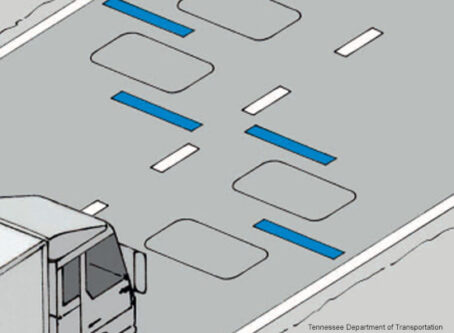British Columbia officials drop the ball when it comes to announcing major changes
You learn something new every day.
I recently learned that the legislative process in Canada – specifically British Columbia – is light-years faster than what we are used to here in the United States.
On March 12, the British Columbia Ministry of Transportation and Infrastructure announced proposed changes to the province’s Commercial Motor Vehicle Act that would allow courts to impose fines up to $100,000 (CAD) and/or up to 18 months in prison for carriers involved in infrastructure crashes.
Those “proposed changes” follow a months-long battle between the province and carriers to curtail bridge and overpass strikes in British Columbia. In December, the provincial government announced increased fines and penalties for infrastructure crashes.
But since then, rather than there being a decrease in crashes, the rate at which they’re occurring is trending in the opposite direction – with 10 reported incidents since the higher fines went into effect.
In March alone, four separate infrastructure crashes occurred within the final nine days of the month. Land Line contacted the ministry at that time for confirmation of the crashes and the resulting carrier suspensions, in addition to asking the ministry about the rate at which those incidents were happening.
“The Province has taken recent action to address the number of infrastructure crashes reported in B.C., with more action anticipated this year,” the ministry told Land Line. “We have brought in new deterrents, including the highest fines in Canada and lengthy suspensions of entire fleets.”
One of those deterrents, according to the ministry, was the new penalty structure could result in $100,000 fines and/or jail time – which was news to me, considering the last update I had seen was the March 12 release from the ministry that explicitly referred to the higher fines as “proposed changes.”
The ministry told Land Line those changes were approved by Royal Ascent on March 14 and went into effect the same day.
“Following a crash, an investigation by an enforcement officer will determine whether a violation ticket will be issued or charges will be recommended to Crown Counsel,” the ministry said. “For the most egregious safety violations with severe safety and property damage, this legislation opens the possibility for enforcement to pursue more severe penalties by way of prosecution through the courts.”
That is all well and good, except for one minor detail: The ministry never announced the new fines were approved and had gone into effect.
Now, maybe I am not as well versed in the Canadian legislative process as I should be – perhaps because I’m used to the pregnant pace at which changes take place here in the U.S. – but having regulations go from “proposed changes” to law within 48 hours is a wild concept to me.
Furthermore, the lack of an official announcement from the ministry makes me question the transparency of the process as a whole.
When pressed about when the information was disseminated to carriers throughout the province, the ministry forwarded Land Line a link to the March 12 announcement. You know, the one that had come out two days prior to the changes being approved and used the precise language “proposed changes.”
Even with confronted with that fact, the ministry contended the changes were “well publicized,” adding it had worked with industry stakeholders and the BC Trucking Association, which shared the details with its membership.
A quick look at the BCTA’s website does show the group shared information with its members via a March 12 blog post and in its March 18 newsletter. However, those posts referred to the increased consequences as “proposed changes” and failed to mention they had already been approved and had taken effect.
I followed up with an email to the ministry asking about the use of “proposed changes” – which apparently means something different in Canada – and the lack of an announcement of an enforcement date. In response, the ministry sent a link to the legislative assembly so that I could follow the progress of future proposals. Super helpful.
Call me old-fashioned, but I’m the kind of person who thinks that when a government makes radical changes – like possibly throwing truckers in prison for hitting a bridge – they should make some type of concerted effort to inform the public.
The ministry would contend they’ve done so. I’ll leave that up to you to decide.
Long story short: Don’t hit a bridge or overpass in British Columbia. While the province may not be great at passing out information, it certainly has a knack for passing out fines. LL









